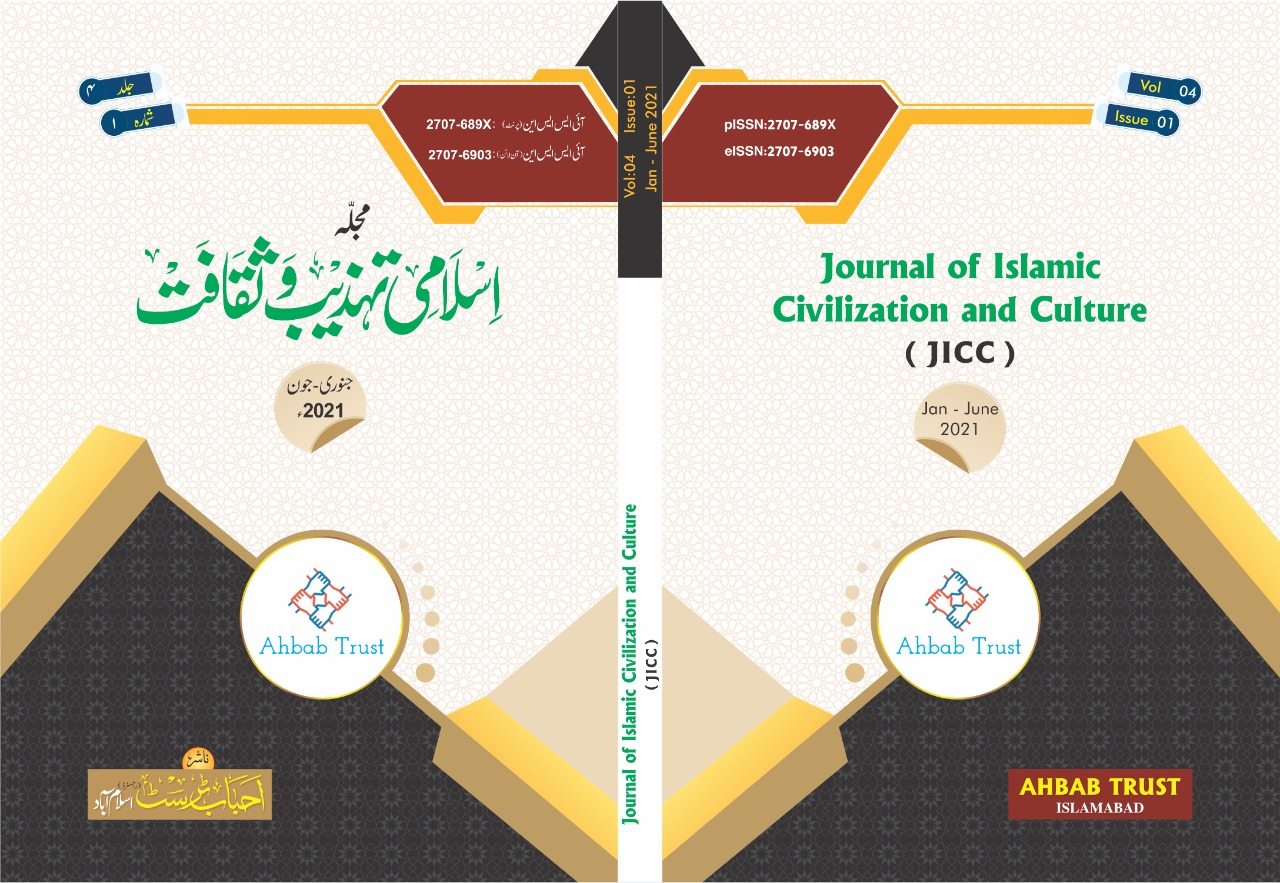فقہ اسلامی کی روشنی میں پاکستان پرزنز رولز مجریہ 1978ء کے قوانین سزائے موت کا تنقیدی جائزہ
A Critical Study of Death Penalty Rules of Pakistan Prisons Rules, 1978 in Islamic Law
Abstract
Islam is a complete code of life. It provides guidelines for every aspect of humanity that is why it is necessary to establish a comprehensible and detailed system of punishment in order to maintain social peace and satisfaction. That is why Islam commands Hudud, Qisas and Tazir for various crimes. The Hudud is the punishment and its limitations prescribed by allah such as theft, adultery, alcohol, apostasy, robbery etc. Qisas is the punishment of death for murderer. Tazir is punishment not prescribed by allah but is based on the discretion of the Allah.
The system of any society or state cannot survive without its system of punishment and retribution as Allah said “If it were not for Allah checking(some) people by means of others, the earth would have been corrupted” that is why efforts have been made in Pakistan since 1947 to reform this system. Whereby a law for reform of Prisons and inmates “Pakistan Prisons Rules, 1978” was issued. Its chapter no.15 provides a detailed explanation of the death penalty. In which every crime punishable by death is mentioned by hanging and dying. The hands and feet of the criminal should be tied and a strong rope should be attached to his neck and should be hanged from a tall wood until he dies.
Islam prescribes the death penalty for robbers. The rest of the punishment for adultery is stoning, the punishment of intentional murder is beheading with the sword, the punishment of theft is to cut off the hands of thief.
That’s why, in Islam it is not permissible to give the death penalty in the form of execution.
Therefore, by reviewing the punishments related to execution under this act, the punishments prescribed by shariah, should be determined accordingly which will be the guarantor of lasting social peace and tranquility.





